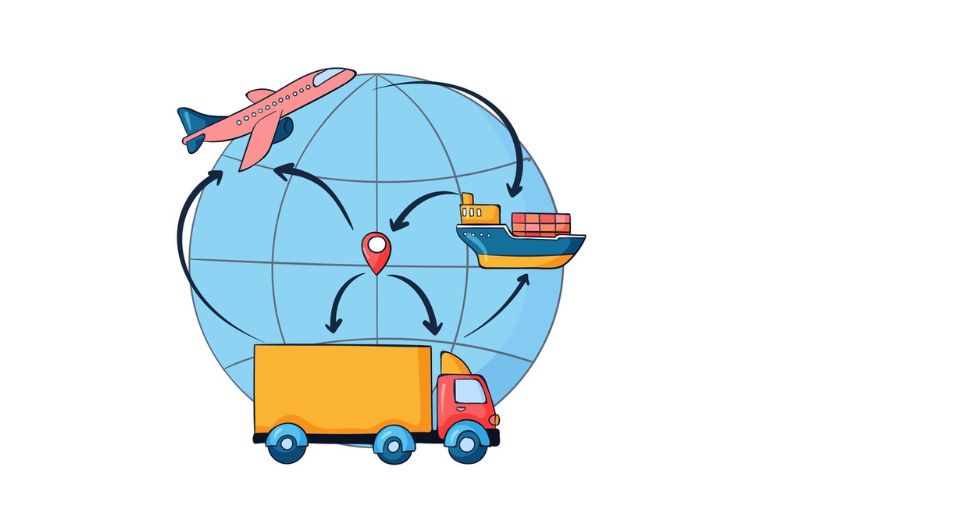
Feb 14, 2025

The Global Cargo Transportation Insurance market, according to Metastat Insight, is an essential backstop that safeguards shipments from all the risks mentioned above, protecting against a number of risks that may come in the event of shipping goods around the world. It has become an important component of international trade as companies are always faced with the challenge of securing their shipment from unpredictable events like theft, damage, natural disasters, and accident. In the last couple of years, the demand for full cargo transportation insurance has risen sharply, spurred by the rapidly expanding global trade network and growing complexities associated with international logistics.
Global Cargo Transportation Insurance market is estimated to reach $57,055.14 million in 2025 with a CAGR of 4.3% from 2025 to 2032.
As more goods are shipped across different regions and countries, risks have also increased. This made demand for cargo insurance very high because it covers physical damage to the cargo, legal liabilities, environmental hazards, and any other unforeseen events that would cause financial loss. Cargo transportation insurance is a protection not only to the shippers but assures also consumers and businesses that they would be compensated in any unfortunate event. The policies offered are designed to ensure that the financial impact of potential damage is mitigated, thus making it a crucial part of the transportation and logistics sectors.
The complexities of the Global Cargo Transportation Insurance market are further highlighted by the increasing number of players entering the space, with a diverse range of policy offerings catering to the needs of various industries. This has also changed how such policies are offered, with increased digital platforms making easier access to information, faster settlement of claims, and definitely more transparent processes. In addition, as trade becomes more complex and shipments larger and therefore more valuable, there has been increasing pressure on the insurers to become more specialized and tailored for individual clients.
One of the most significant market changes has been the development of policies that can cover emerging risks such as cyberattacks and technological disruptions, now considered part of the evolving risk landscape. Because more businesses now rely on digital tools for managing logistics, there is a heightened exposure to new vulnerabilities that older insurance models did not account for. Consequently, cargo transportation market insurers have had to rethink their policies to cover risks such as these; they offer solutions that encompass the physical world of cargo insurance and cybersecurity/data breach coverages.
An important key aspect in the growth of the market has been the continued collaboration between insurance companies, logistics firms and trade associations. Through their combined efforts, they have insured cargo transport policies better aligned with the needs of the industry. More effective risk management strategies result. Moreover, insurers continue to innovate ways in which they might improve their services and offerings for businesses to be covered for more significant eventualities affecting their shipments. Some good examples are these: insurers started using data analytics to provide special policies depending upon the type of goods being shipped, the geo-regions they are being shifted between, or the nature of the transit. These sophisticated technologies enable greater acuteness for pricing and insurance coverage, such that policies made available are equally cheaper and of greater coverage scope.
The cargo insurance market also faces pressure from an evolving regulatory environment around international trade. As the structure of global trading continues to shift and respective economies change in the course of time, regional as well as international-level regulation emerges, resulting in a dynamic environment. The difficult situation is compounded by being subjected to tariffs and sanctions for trading with various countries. With an effective awareness of international laws and compliance rules, insurers will be better prepared to provide coverage to cross-border traders.
There is increased emphasis on customer services and claims handling due to increased competition in the Global Cargo Transportation Insurance market. The focus of insurers is on quick response times and more efficient claims processing, ensuring that businesses are not left waiting for long periods in the event of a loss. Many insurers also now offer value-added services, such as risk management advice, which enable their clients to take proactive steps to minimize the likelihood of claims in the first place. These supplementary services will not only help businesses protect their shipments but also help them better manage their overall risk profiles.
The cargo transportation insurance market is expanding. Business needs to be vigilant and adapt to this new landscape. One must consider the increasingly complex nature of international trade, new risks, and increased reliance on technology - all elements that point toward more robust insurance solutions that may offer comprehensive protection. Finally, the Global Cargo Transportation Insurance market-as depicted by Metastat Insight-continues to evolve in response to this constantly changing global trade environment that is both a challenge and an opportunity. Adopting technological advancements, regulatory changes, as well as focusing on customer service, puts the insurer in a position to deliver according to the demands of the future.
Drop us an email at:
Call us on:
+1 214 613 5758
+91 73850 57479